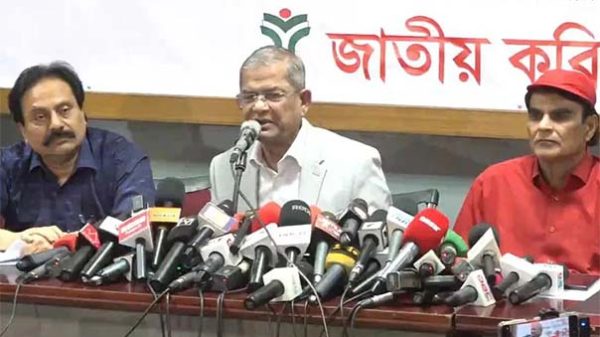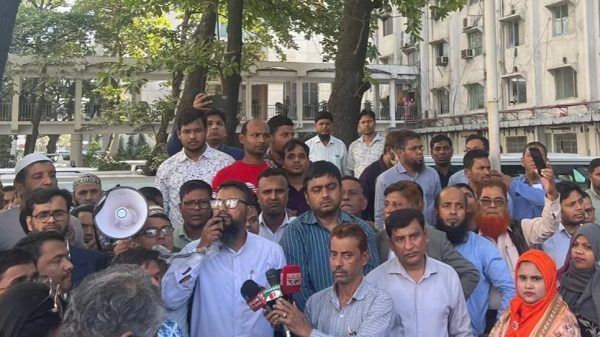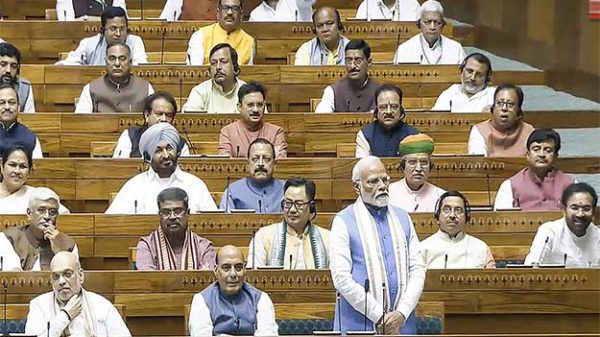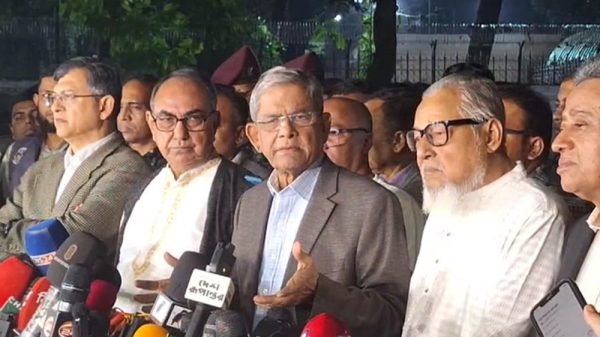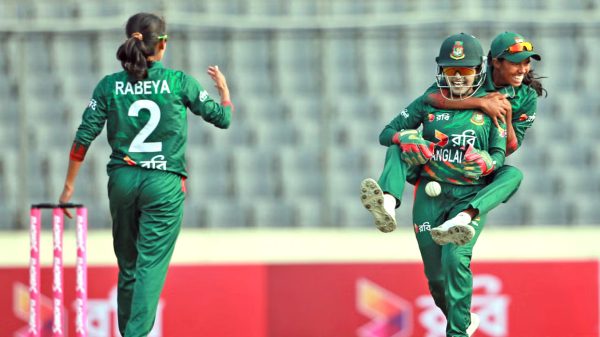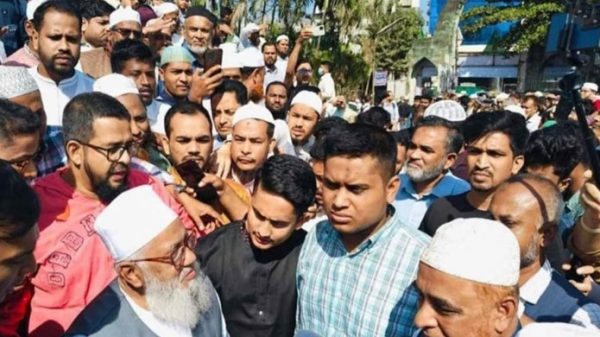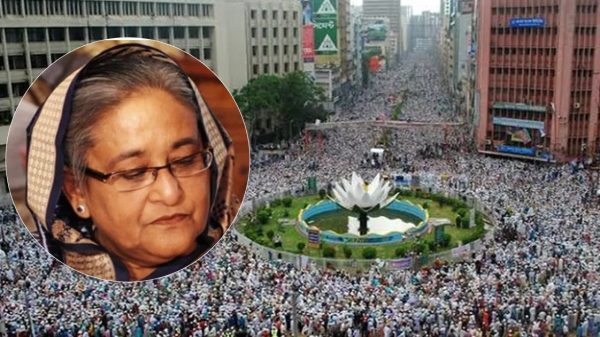Govt to take institutional approach to protect environment journalism: Arafat

- Update Time : Saturday, 4 May, 2024, 07:22 pm
- 73 Time View
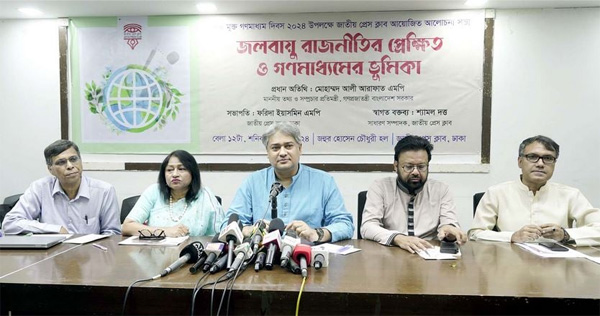
Online Desk: State Minister for Information and Broadcasting Mohammad Ali Arafat today said since the government is committed to protect environment, it will take an institutional approach to protect the fact-based journalism on climate and environmental issues.
“It is our central commitment to protect environment. If any journalist faces problems, created by so-called local influential people who are responsible for environment ruination, for reporting on environmental issues anywhere, we will ensure full support and protection for him or her,” he said.
“If needed, we will take an institutional approach in this regard” added the state minister.
He gave the assurance to journalists at a discussion organized by the Jatiya Press Club (JPC) at Jahur Hossain Chowdhury Hall of the club here, marking the World Press Freedom Day with JPC President Farida Yasmin, MP, in the chair.
JPC General Secretary Shyamal Dutta delivered welcome address in the event while Director of the Climate Change Programme and Urban Development Programme and Disaster Risk Management Programme at BRAC Dr Liakat Ali presented the keynote paper.
Noting that Bangladesh is the worst victim of climate change despite being least responsible for it, Arafat said, therefore, Bangladesh has to work taking the leadership role in the global stage in this regard.
Under the leadership of Prime Minister Sheikh Hasina, he said, Bangladesh is always vocal on global platforms and negotiating to realize compensation from the developed countries responsible for damaging environment.
“We are working following an inclusive process, involving the government, civil society and mass media as all are united regarding this issue,” Arafat added.
Along with protecting environment and ecology, the government wants to keep the wheel of the country’s economic development moving, but many people make ill efforts to create controversy over the development projects using the environmental issues as a shield, he said.
“So, I cannot consider as professional journalism the motivated journalism to halt the development spree using the environmental issues as a shield. We want to work with all on the basis of partnership with utmost honesty,” Arafat said.
He said Bangladesh became first among 200 countries in achieving SDGs for six years in a row, which proved that this government does not believe in only development but in sustainable development.
Reiterating the government’s commitment to ensure free flow of information, Arafat said, he is working to change the restrictive mindset of government officials over providing information.
“We will organize orientation programmes for government officials at different levels and training programmes for journalists on how they can effectively use the Right to Information (RTI) Act to get information,” he added.
As there is no effective fact-checking body in the country, Arafat said, he is mulling over establishing a fact-checking body linking with Press Council following an inclusive way involving all stakeholders.
About the RSF’s (Reporters Without Borders) World Press Freedom Index, he said the RSF report of 2023 had many methodological weaknesses. “I sent a letter to the RSF showing their methodological weakness in that report and they acknowledged the mistakes and corrected the data,” he added.
“As they published this year’s report based on the last year’s performance, I will take stronger steps next year so that they reflect the real scenario of the country in their report,” the state minister said.
Executive Member of the JPC Managing Committee Zulhas Alam conducted the event while BFUJ-Bangladesh Federal Union of Journalists President and BSS Chief News Editor (CNE) Omar Faruque, JPC former President Sawkat Mahmud and Diplomatic Correspondents Association, Bangladesh (DCAB) President Nurul Islam Hasib spoke.
Earlier, in another discussion organized by the Editors’ Council at Tafazzal Hossain Manik Miah Hall at the JPC, the state minister said the mass media in Bangladesh is enjoying full freedom.
As some indiscipline entered the journalism arena, now the professional journalists are demanding for bringing discipline in the sector, he said.
“But we firmly believe, as long as the media will enjoy freedom and free flow of correct information will be available, disinformation will get eliminated from the society,” Arafat added.
The government always welcomes the constructive criticism based on correct information, he said, adding, “But we denounce the agenda-based systematic disinformation campaign in the name of criticism”.
Editors’ Council President Mahfuz Anam presided over the discussion while General Secretary Dewan Mohammad Hanif moderated it.
Newspaper Owners’ Association of Bangladesh (NOAB) President AK Azad, JPC General Secretary and Bhorer Kagoj Editor Shaymal Dutta, Desh Rupator Editor Mustafa Mamun, Dhaka Tribune Editor Zafar Sobhan, environmental lawyer Syeda Rezwana Hasan and environmental journalist Pinaky Roy spoke at the discussion.
Prothom Alo Editor Matiur Rahman and Dainik Inqilab Editor AMM Bahauddin were present, among others.



